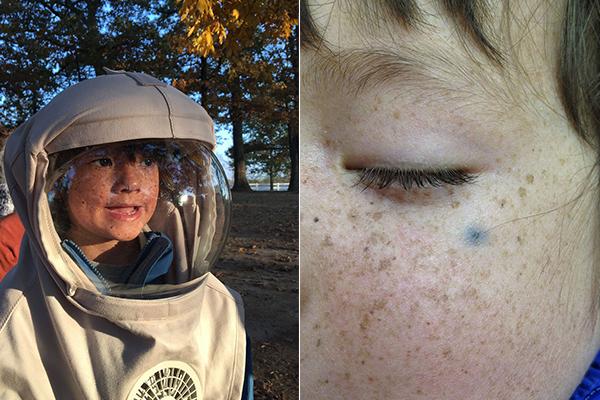【】
 Credit: Mashable Composite, WOCinTech Chat
Credit: Mashable Composite, WOCinTech ChatIf you only have a LinkedIn profile because you’re supposed to have one, get ready to have your world turned upside down. OK, maybe not turned upside down, but there’s a whole lot more to the platform than uploading your resume and forgetting about it.
Seriously, whether you’re a C-level executive, an entry-level wannabe, or, like most of us, somewhere in between, using LinkedIn to its full potential can help you become more successful in your career.
Want proof?
Professionals who have an All-Star rating “are 40 times more likely to receive opportunities through LinkedIn.”
How do you get that rating?
As a LinkedIn insider, let me tell you: it takes seven essential elements to have a completed profile. To qualify, your page must contain the following:
Industry and location
An up-to-date current position (with a description)
Two past positions
Education
Skills (minimum of three)
Profile photo
At least 50 connections
Filling in these fields is only the first step, but it’s a good one because only 51 percent of members have a completed profile. Once you cut out half the competition, your next move is to separate yourself from within the All-Star pack.
Here are 10 steps to improving your LinkedIn profile from top to bottom.
Step 1: Add (the right) photos

Adding a professional photo makes you 11 times more likely to be found by hiring managers and recruiters. This is important because more profile views can translate to more visibility in your industry and more connections.
Don’t forget the basics: only you should be in your picture! As for what to wear, my rule of thumb is to look at the dress code in your industry and dress slightly more formal. And before you worry that you can’t afford to hire a professional, don’t — here’s how to fake a professional headshot for free.
In addition to your profile picture, add a background image. It’s a nice touch to improve your look, and it can help you weave a consistent story.
Step 2: Write a better headline

The next step is to write an attention-grabbing headline. Quickly explain what you currently do as well as what you want to be doing (if it’s not the same). Show your passion and how you add value.
So, instead of defaulting to a job title, add a bit more, like this:
Experienced Writer Creating Content for Fortune 500 Companies
Social Media Expert Seeking Nonprofit Opportunities
Use keywords (not overused buzzwords) that make it easy for others to find you. You can identify the right options by reviewing job descriptions in your industry.
Step 3: Claim your URL

Just below the photo and headline is your profile’s URL. You can customize it by hovering over the Profile menu and selecting Edit Profile. From there, hover over the URL, then click on the gear image. You can then make the edit in the top right corner of the page. A customized URL will increase your search results, make it easier to direct people to your profile (especially a bonus if you have a common name), and it’ll look sharp in email signatures and on business cards.
Step 4: Revise your summary

Many people neglect writing a summary, likely because it takes time and energy to craft a compelling one. But this section doesn’t need to be long. In fact, just a few short paragraphs summarizing your professional background, areas of expertise and key accomplishments will do the trick. Does your past experience differ from where you want to go? If so, your summary is the perfect opportunity to connect the dots.
Step 5: Showcase your experience

Far too many professionals simply paste resume bullet points from each of their positions. But your experience section can be so much more. Think about what you’ve achieved, delivered and learned in each of your positions. Include distinct measurables and quantify whenever possible. Share details of interesting projects and key accomplishments.
And don’t forget to illustrate your unique professional story and achievements by adding visuals. Including pictures, compelling videos, links to news stories, press releases and innovative presentations you’ve delivered will bring your experiences to life.
Step 6: Don’t neglect your education

The education section is especially important for students and recent graduates, because fellow students and alumni are a key part of your network, and if someone searches for “people who studied at [your University]” (which is a LinkedIn search prompt), you want to show up in the results. Especially if your experience section is otherwise a bit thin, you can include relevant coursework, school projects, case competitions and extracurricular activities. Like your experience section, you can set yourself apart by adding rich media.
Step 7: Add volunteer experience and causes

Adding volunteer work and causes you care about will round out your professional identity. Did you know that almost half of all hiring managers view volunteer experience as “equivalent to full-time work experience?”
Step 8: Take skills and endorsements seriously

Members who list skills on their LinkedIn profile receive an average of 13 times more profile views. Just make sure you’re sharing the right skills: one way to identify relevant skills is to review profiles of your peers and colleagues — and add the ones that apply to you, too.
A lot of people role their eyes at the endorsement feature because they’ve seen some pretty silly ones. But not taking this feature seriously is a missed opportunity. However, there’s evidence that more endorsements will lead to higher LinkedIn search results. And did you know that you can edit the order of your skills and put the most important ones at the top? Doing so will increase the likelihood you get endorsed for the ones you care most about.
Step 9: Ask for recommendations

While it may not affect the search metric, recommendations feel more reliable than skill endorsements, so you want to be sure you have those, too. Many professionals get endorsed for skills by people who hardly know them, but this isn’t the case with a recommendation. Having these is a powerful way to show your value to the world. Aim to have one to two for each position. Consider asking peers, clients, and managers shortly after you receive feedback so you can build them up slowly, rather than feeling pressured to get a bunch at once.
Step 10: Round it out

Finally, here are a few profile sections that often get overlooked. While not the core of your profile, completing these elements can strengthen your presence:
Companies Followed: I’ve heard career advisors share that some companies actively monitor their followers and will proactively reach out to people who are a good fit.
Groups: engaging within groups is a great way to meet new people, but it’s also a way to signal your interests and share your expertise.
Awards and Certificates: if you’ve been given a relevant award or have an industry certification, don’t be bashful about sharing it on your profile!
Personal Interests: while perhaps not appropriate for every industry, often adding a few hobbies or interests can humanize your profile and bring a personal touch.
Above all else, remember that your profile should tell the story of where you’ve been, where you are now and where you want to be in the future. It’s a living document that should be updated and refined on a regular basis. So, set aside time to review what you currently have and make the needed changes. LinkedIn can connect you with opportunity, but only if you’re prepared.
TopicsLinkedInPinterest
- 头条新闻
- Dramatic photo captures nun texting friends after Italy earthquake
- Trump just screwed the planet and the internet did not hold back
- Donald Trump's tweet against London mayor manages to unite everyone in the UK
- Google pays homage to an architectural genius with its latest doodle
- 'Rocket League' Championship Series Season 2 offers $250,000 prize pool
- Austin mayor has the perfect response to man mad about women
- This guy survives in the wild with nothing but a bunch of everyday tech gadgets
- People are pretending the floor is lava and no, you haven't traveled back in time
- Uber's $100M settlement over drivers as contractors may not be enough
- Queen Elizabeth II reportedly a big fan of her life story in 'The Crown'
- 图片新闻
- 新闻排行榜








